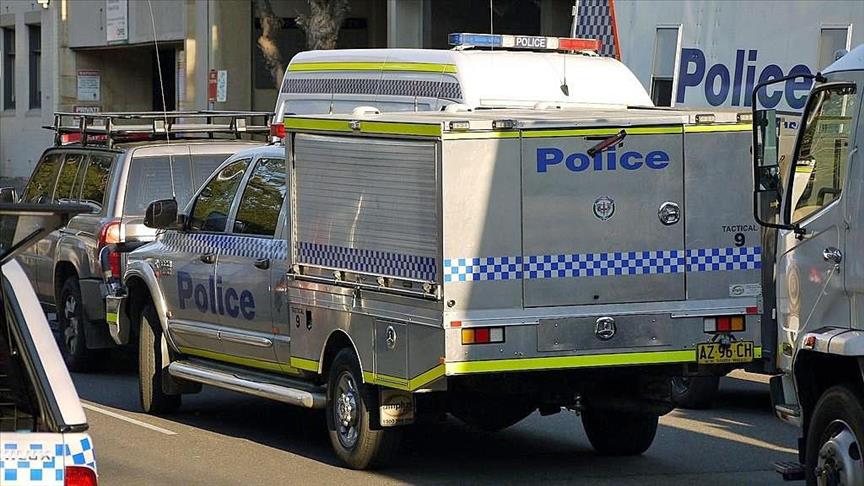Myanmar workers sentenced to death in UK tourists murder
Thai court finds 22-year-olds Zaw Lin and Wai Phyo guilty in widely criticized case that saw them recant confession made after alleged torture

By CS Thana
BANGKOK
A Thai court sentenced two Myanmar migrant workers to death Thursday for the murder of two British backpackers on a resort island in a widely criticized case.
The Samui Provincial Court found the 22-year-olds, Zaw Lin and Wai Phyo, guilty for the rape and murder of Hannah Witheridge, 23, and David Miller, 24, on Koh Tao in September last year.
In issuing the death penalty, the court ignored defense claims that the pair had been intimidated into an early confession by authorities and that DNA evidence was faulty at best.
In a pre-trial statement, Andy Hall of the Migrant Worker Rights Network argued that an independent inquiry into the DNA evidence found flaws in police forensics investigation.
He also called into question the early confessions of the defendants -- which were later recanted -- pointing to a National Human Rights Commission investigation that found evidence of torture and coercion.
Hall told reporters outside the courthouse Thursday that the rights group and the defense team will appeal the ruling.
Miller and Witheridge were found bludgeoned to death on a Koh Tao beach in southern Thailand on Sept. 15 last year. Witheridge had been raped before the murder.
A hoe with bloodstains was discovered nearby.
After being under pressure for weeks, Thai police had conducted blanket DNA testing across the island, focusing particularly on migrant workers before arresting Zaw Lin and Win Zaw Htun in Oct. 2014.
In a statement released after Thursday’s verdict, Miller’s brother Michael expressed the family’s utmost respect for the court and its ruling, saying they “believe that the result today represents justice for David and Hannah.”
He noted their initial uncertainty about the guilt of the suspects as they saw “images of two innocent looking men surrounded by tough policemen,” making it “easy to conclude they might just be convenient scapegoats.”
Michael added, however, that as the legal process went on, “we came to realize that the police investigation and the forensic work performed was not the so called shambles it was made out to be.”
He said the family believes that “after a difficult start the Royal Thai Police conducted a methodical and thorough investigation.”
Since the arrests of the two suspects, doubts have been expressed about the alleged lack of professionalism of the investigation, with suspected manipulation of DNA samples by the Thai police being a key issue in the murder investigation.
Last September, the director of the Central Institute of Forensic Science, an agency under Thailand’s justice ministry, told the court that DNA found on the hoe belonged to two persons other than Zaw Lin and Win Zaw Htun.
Expert Pornthip Rojanasunan said police, who have their own forensic department, had only examined the fingerprints found on the hoe but not the DNA.
Her testimony added to previous doubts about the Thai police’s inquiry. In the immediate aftermath of the murder, the scene was not properly sealed and police officers moved at least one of the bodies, potentially corrupting evidence.
When the court told the police to produce the DNA samples used to incriminate the defendants, they initially said the samples had been destroyed.
Last October, Zaw Lin told a criminal court that a police interpreter had told him that he would be killed if he refused to “confess” to the crime, in which case he was told he would be imprisoned “only for four or five years.”
He added that the interpreter had hit him during interrogation.
Zaw Lin also said that before the re-enactment of the crime last year, the interpreter had told him and Win Zaw Htun what they should do in front of reporters attending the event.
The Myanmar and British governments have both asked that the investigation be conducted in a “fair manner,” with Scotland Yard officers even joining the investigation after British Prime Minister David Cameron expressed concern to Thai junta leader-cum-Prime Minister General Prayuth Chan-ocha.
Meanwhile, human rights activists have underlined the prejudices they say the case illustrates against migrant workers, who make up the bulk of the workforce in the resorts of southern Thailand.
Most of them are undocumented and, according to activists, easy prey for extortion by local officials.
After Thursday's ruling, more than a dozen police were deployed to guard the Thai Embassy in Yangon as Myanmar nationals called for a protest over social media.
The mission issued a warning calling on nationals visiting and living in Myanmar to take safety precautions and temporarily avoid publically identifying themselves as Thai.
The Bangkok Post cited embassy and Thai Foreign Ministry officials as saying that around 30 people had gathered outside the mission in the afternoon before leaving peacefully an hour later.
A protest is being planned outside the building Friday, when the mission will be closed for the Christmas holiday.
Anadolu Agency website contains only a portion of the news stories offered to subscribers in the AA News Broadcasting System (HAS), and in summarized form. Please contact us for subscription options.








